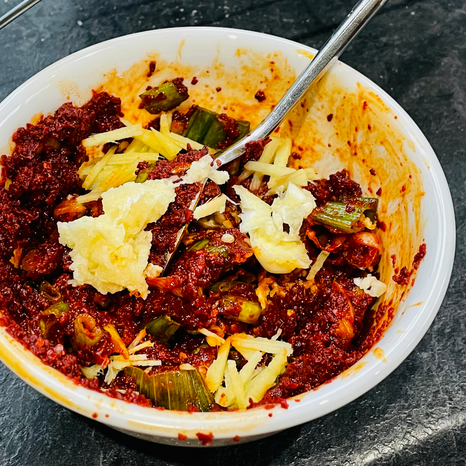Blood in a newborn’s stool: What does it mean?
Find out what blood in the stool of newborn babies could mean and what you should do.
Blood in a newborn’s stool: What does it mean?
Learn more about what causes burning diarrhoea and how to control iould mean and what you should do.
A cause for concern?
During their infancy, some babies may experience blood in their stools. In most cases, the blood is present as small flakes but it can show as large streaks too.
It should be noted, however, that a newborn’s stool appearing red doesn’t always indicate the presence of blood; sometimes this colouring may be caused by staining from certain foods, like beets and even some fruits.
Though blood in a newborn’s stool isn’t always something to be worried about, it may indicate other underlying medical problems.

A cause for concern?
During their infancy, some babies may experience blood in their stools. In most cases, the blood is present as small flakes but it can show as large streaks too.
It should be noted, however, that a newborn’s stool appearing red doesn’t always indicate the presence of blood; sometimes this colouring may be caused by staining from certain foods, like beets and even some fruits.
Though blood in a newborn’s stool isn’t always something to be worried about, it may indicate other underlying medical problems.

What could cause blood in a newborn’s stool?
Below are a few potential causes of blood in the stools of a newborn:
What to do when you notice blood in your baby’s stool
If you notice blood in your baby’s stools, the first step is to stay calm and consult your baby’s healthcare provider or paediatrician. They will examine your baby and ask you questions about their symptoms, diet, and medical history to determine the underlying cause of the bleeding.
In the meantime, it’s essential to keep track of your baby’s bowel movements, any other symptoms, and general behaviour. You should also continue to feed your baby as usual and avoid giving them any medications or supplements without consulting your doctor first.
Blood in a newborn’s stools can be concerning, but with prompt medical attention and careful monitoring, most underlying causes can be identified and treatment for blood in stool can be recommended.


Keep your child’s gut healthy
Managing your baby’s gut health is very important, especially during the first few months of their infancy. This is why you should visit a well-reputed gut clinic if you notice anything alarming about your baby’s gut health.
At Sydney Gut Clinic, our team of highly experienced gastrointestinal specialists can help you with digestion and gut-related issues for both you and your child. Schedule an appointment with us today.
Keep your child’s gut healthy
Managing your baby’s gut health is very important, especially during the first few months of their infancy. This is why you should visit a well-reputed gut clinic if you notice anything alarming about your baby’s gut health.
At Sydney Gut Clinic, our team of highly experienced gastrointestinal specialists can help you with digestion and gut-related issues for both you and your child. Schedule an appointment with us today.

FAQ
Can breastfeeding lead to blood in a newborn's stool?
Rarely, bleeding or cracked nipples from breastfeeding can cause blood to pass through a newborn’s faeces, causing the baby to consume small amounts of blood mixed with breast milk.
Are there any warning signs that indicate a serious issue with blood in a newborn's stool?
Yes, there are some warning signs, such as a notable increase in stools containing blood, extreme fussiness or crying, vomiting, fever, and poor weight gain. It is vital to seek emergency medical assistance if any of these symptoms are present.
How can a paediatrician identify the reason why a newborn's stool contains blood?
A paediatrician might examine the infant physically, look over their health history, and inquire about their feeding routines. To determine the underlying problem, they may also request imaging tests, blood tests, or stool tests.
What should individuals with SBS eat?
The major aims of the SBS diet are to manage symptoms, maintain hydration, provide adequate nutrition, prevent problems such as electrolyte imbalances and malnutrition, and minimise diarrhoea.




